Textile
Textile industry seeks immediate withdrawal of 2% AIT; threatens cotton import halt
Bangladesh's vital textile sector is teetering on the brink of crisis, with industry leaders vehemently protesting a newly imposed 2 percent Advance Income Tax (AIT) on imported cotton and an increased specific tax on locally produced yarn.
"We cannot bear this additional tax burden," said BTMA President Shawkat Aziz Russell during an emergency press conference held at Gulshan Club on Saturday, highlighting a confluence of challenges already plaguing the industry.
BTMA Directors Khurshed Alam, Abdullah Al-Mamun, Saleuzzama Khan, Badsha Mia, and Mohammad Ayub, along with former President of the Cotton Association Hossain Mahmud, Home Textile Association representative, and BKMEA Vice President Amor Powder, were present at the press conference.
The Bangladesh Textile Mills Association (BTMA) has taken a drastic measure, halting the release of cotton containers from ports and is urging the government to immediately revoke these ‘self-destructive’ policies.
The BTMA leaders raised alarm without the immediate withdrawal of the 2 percent AIT and a reduction of the specific VAT on yarn from Tk 5.0 per kg, domestic textile factories face imminent closure.
Strong hatchery, skilled workforce vital for sustainable growth of poultry sector
He cited soaring bank interest rates (up to 15-16 percent), higher corporate taxes and persistent uncertainty regarding gas and electricity supplies as critical factors undermining their operations.
They also highlighted that this AIT policy will be benefited the neighbour country export yarn to Bangladesh as they (Indian traders) getting incentive to export yarn.
The association emphasised the urgent need to protect local industries and safeguard employment.
They argued that while the government may view these measures as revenue-generating, they will, in reality, plunge the textile sector into deeper distress, ultimately harming the national economy.
The new impositions come at a time when the textile sector is already reeling from a multitude of issues, including:
· Abnormal increases in gas and electricity prices
· Significant reductions in cash incentives for exports
· Uninterrupted energy supply shortages
· Persistent currency devaluation
Garment exports to non-traditional markets mark 6.79pc increase in July-May
Compounding these woes, the Finance Ordinance 2025 for the fiscal year 2025-26 has further exacerbated the situation by increasing the specific tax on locally produced cotton yarn and yarn mixed with artificial and other fibers from Tk 3 to Tk 5 per kilogram at the production stage.
This particular move is expected to severely impact the domestic spinning sector.
7 months ago
APR showcases 'pioneering solutions' in textile at DTG 2023
Indonesia's Asia Pacific Rayon (APR), a producer of viscose rayon, is showcasing and providing samples of its yarns and fibres at the 17th Dhaka International Textile and Garment Machinery Exhibition.
The four-day exhibition that began Wednesday is expected to provide an opportunity for local textile and garment manufacturers to meet their global suppliers and experience their digital solutions and innovations.
APR is Asia's "first fully integrated" viscose rayon producer from plantation to viscose fibre and the only Indonesian company that has joined the exhibition.
The company is sharing information on its sustainability commitments under its APR2030 agenda, including the responsible sourcing of fibre for viscose production. Some of the APR2030 targets include reducing its product carbon footprint per tonne of viscose staple fibre by 50 percent.
APR said it will continue to derive 100 percent of its mill's energy needs from renewable and clean energy sources, investing in solutions to improve process efficiency and recovery systems and accelerate innovation in textile recycling, using 20 percent waste composition in its viscose production.
The company's mill in Pangkalan Kerinci, Riau, Indonesia, produces 240,000 tonnes of viscose staple fibre annually "using state-of-the-art production facilities and innovation while ensuring environmental-friendly production."
APR is the "first viscose manufacturer" in Indonesia to earn the sustainable textile production (sTeP) certification from OEKOTEX, an independent Swiss-based certification organisation for viscose staple fibre.
The company sells to more than 20 countries globally, including key markets like Turkey, Pakistan, and Bangladesh.
Bangladesh is the second largest export market for APR with around 20 percent share of the company's total export.
Viscose-rayon is a fully biodegradable alternative to acrylic, polyester, nylon, and other petroleum-based synthetic fabrics. The demand for viscose rayon is poised to grow at a CAGR of 4 percent by 2028 as fashion brands shift to non-fossil fuel-based materials.
Soft as cotton, breathable, and smooth as silk, viscose rayon drapes beautifully and provides comfort and design versatility.
"Bangladesh is a key market for us. Our VSF (viscose-staple fibre) business will continue to expand into the international markets by partnering with others in the textile value chain. We are committed to responding to customer demand for sustainable viscose with quality, differentiated product offerings, and competitive pricing," said Tapan Sannigrahi, vice-president of marketing and downstream development of APR.
Read more: Bangladesh RMG industry gearing up with latest innovations & technologies: BGMEA
3 years ago
Apparel, textile sector development: Bangladesh, Taiwan can thrive together, says BGMEA
The Bangladesh Garment Manufacturers and Exporters Association (BGMEA) has said Bangladesh and Taiwan have great potential to complement each other for the development of the apparel and textile industries of the countries.
The organisation made the observation when a delegation of the Taiwan Textile Federation (TTF) led by its President Justin Huang called on BGMEA President Faruque Hassan in Dhaka Thursday.
They discussed various issues of mutual interest regarding the apparel and textile industries.
The two sides talked about how both associations could work together to build interactive connections between apparel and textile businessmen of Bangladesh and Taiwan to facilitate meaningful business interactions.
Faruque said Bangladesh is the second largest exporter of readymade garments (RMG) in the world whereas Taiwan has a strong textile industry, particularly with considerable strengths in the non-cotton segment.
Read more: Netflix Movie: BGMEA protests derogatory remarks on Bangladesh RMG sector
Since Bangladesh is strongly focusing on shifting from cotton to non-cotton products and value-added products, Taiwan with its big textile industry producing man-made fibres, polyester filament, nylon fibre and other fabrics can meet the demand of Bangladesh's RMG sector, he added.
Also, the BGMEA and TTF expressed interest in organising trade exhibitions to develop ties between RMG and textile businessmen of Bangladesh and Taiwan so that both sides can work together to create a win-win situation.
BGMEA Vice-President Shahidullah Azim, directors Asif Ashraf and Abdullah Hil Rakib, Timothy WD Tso, director at TTF and Emily Chen of the Promotion Section at TTF were also present at the meeting.
3 years ago
Nigerian delegation discusses Dhaka-Abuja trade potential with BGMEA
A delegation comprising high officials of different ministries of the Nigerian government paid a visit to Bangladesh Garment Manufacturers and Exporters Association (BGMEA) President Faruque Hassan in Dhaka Monday (January 16, 2023).
The delegation included Abubakar Aliyu Aziz, director general of the National Identity Management Commission, MaskaUbale Ahmed Shehi, executive commissioner of the Communications Commission, Alhassan Haru, director of Communications Commission, and Roberts Moses Achanya, president of the Nigeria-Bangladesh Trade and Technology Forum.
BGMEA Director Barrister Vidiya Amrit Khan, Bangladesh Knitwear Manufacturers and Exporters Association Vice-President Fazlee Shamim Ehsan and Fakir Fashion Managing Director Fakir Kamruzzaman Nahid were also present.
Read more: Bangladesh, Nigeria to explore possibility of signing framework agreement on FTA or PTA
They had discussions about possible areas of collaboration between Bangladesh and Nigeria for bilateral trade benefits, particularly in the apparel and textile industry.
Faruque said there is potential to import more cotton from Nigeria which is a cotton-producing nation. "Nigeria is also a potential market for Bangladesh's apparel export."
He called upon the Nigerian government to reduce import duty on readymade garments (RMG) from Bangladesh and requested cooperation from the delegation in this regard.
Read More: Bangladesh, Nigeria to explore possibility of signing framework agreement on FTA or PTA
3 years ago
BGMEA, SOWTEX to help connect more Bangladeshi RMG exporters with Indian textile suppliers
The Bangladesh Garment Manufacturers and Exporters Association (BGMEA) and SOWTEX have signed another memorandum of understanding (MoU) to increase the collaboration between Indian fabrics and value-added material suppliers and Bangladesh's apparel manufacturers.
Namely, they aim to boost collaboration in man-made fibers and cotton-based materials using SOWTEX Phygital (physical and digital bridge) sourcing platform.
The platform offers connection and facilitation support to the large textile supply chain from India and other countries. It will also create opportunities to increase Bangladesh's readymade (RMG) exports to India, the BGMEA said Thursday (January 12, 2023).
Read more: BGMEA, IICCI, Sowtex team up to make textile sourcing easier for Bangladesh
BGMEA President Faruque Hassan and Sowtex Network CEO Sonil Jain inked the MoU in Dhaka on Wednesday. BGMEA Standing Committee on Press, Publication and Publicity Chair Shovon Islam was also present.
SOWTEX and BGMEA are in the process of arranging collaborative roadshows in Indian textile clusters along with other textile associations with BGMEA's top manufacturing members and large Indian raw materials manufacturers in several cities in India.
Expos have also been planned in Bangladesh to build up the momentum for this second round of collaboration.
Read More: BGMEA signs deal to improve health status of RMG workers
The exhibitions will play an important role in facilitating business interactions between Bangladeshi RMG exporters and Indian RMG, textile and raw materials suppliers and reaping mutual trade benefits, the BGMEA said.
3 years ago
BGMEA for shoring up Bangladesh-India interactions in apparel, textile
The Bangladesh Garment Manufacturers and Exporters Association (BGMEA) has emphasised shoring up business interactions between apparel and textile exporters of Bangladesh and India to open up windows of trade opportunities.
BGMEA President Faruque Hassan said Bangladesh and India could also collaborate in terms of exchange of knowledge and expertise on innovation, product development, especially man-made fibre-based products as Bangladesh is increasingly focusing on these areas.
Rahul Mehta, chief mentor of the Clothing Manufacturers Association of India (CMAI), paid a courtesy visit to the BGMEA president in Dhaka Sunday.
Read: BGMEA, IICCI, Sowtex team up to make textile sourcing easier for Bangladesh
They discussed issues related to the apparel industry, especially potential avenues of collaboration between Bangladesh and India to complement each other for the development of the apparel industry in both countries.
Rahul invited the BGMEA members to participate in the upcoming Fabrics Accessories and Beyond – The CMAI Fab Show in India's Mumbai during September 19-21.
Faruque hoped that the trade show would bring manufacturers and exporters of both countries closer, paving the way to derive mutual trade benefits.
3 years ago
BGMEA, Eswatini for investment in apparel, textile joint ventures
Eswatini, formerly known as Swaziland, and the Bangladesh Garment Manufacturers and Exporters Association (BGMEA) have agreed to look into the possibility of investing in joint ventures in the apparel and textiles industries.
Manqoba Khumalo, minister of commerce, industry and trade, paid a courtesy call on BGMEA President Faruque in Dhaka Wednesday.
Read: BGMEA, Amfori to work together promote Bangladesh as safe, sustainable sourcing destination
Cebile Amanda Mhlabatsi, undersecretary, and Mluleki Sakhile Dlamini, director of MSME at the Ministry of Commerce, Industry and Trade, and Khanyisile Dlamini, senior executive manager at Eswatini Investment Promotion Authority, accompanied the minister during the visit.
Both sides discussed issues of mutual interest for Bangladesh and Eswatini, particularly trade and investment.
BGMEA vice-presidents Miran Ali, Rakibul Alam Chowdhury; Director Asif Ashraf and Chair of BGMEA Standing Committee on Foreign Mission Cell Shams Mahmud were also present at the meeting.
Read BGMEA, Kuhu to take Bangladeshi culture, heritage to global arena with garments
3 years ago
Confidence Infrastructure inaugurates geotextiles plant
Confidence Infrastructure, a sister concern of Confidence Group, has inaugurated a geotextiles plant in its factory in Narayanganj.
Geotextiles manufactured in this plant will be marketed as "GEOCIL."
The monthly production capacity of the newly established plant will be around 1,150,000 bags.
Read: BGMEA hopes for continued support of German govt to RMG industry
Geotextiles are polymer fabrics used for many civil engineering purposes, including the construction of roads, drains, harbour works, breakwaters, and land reclamation.
"To protect human lives, economic infrastructures, and maintain environmental stability, we are manufacturing geotextiles locally by setting up this plant with sophisticated technology," said Rezaul Karim, chairman of Confidence Group, at the inauguration ceremony Saturday.
Salman Karim, managing director of Confidence Infrastructure, said: "Our newly established plant will help the communities across the country by mitigating the risks of natural disasters. It will also contribute to national economic growth as we are looking forward to creating more employment opportunities, improving people's living standards, and exporting our products."
Read: Non-brand bakery products prices soar by 20 percent: BBBCMA
The plant has already started producing GEOCIL bags and Geo Mats.
GEOCIL is being produced in compliance with the specifications set by the Bangladesh Water Development Board, following all the national and international standards.
3 years ago
Digital platform ‘Fabric Lagbe’ formally launched
Fabric Lagbe, a digital platform to sell textile and readymade garments products, materials, product related accessories was formally launched on Tuesday.
Founder and managing director of this digital platform Engineer Md Nazmul Isalm said that options named job and work have also been added at Fbric Lagbe apps and websites where job seekers can upload their CVs along with qualification and experience.
Garment manufacturers can recruit or hire suitable manpower by using the facility at the web portal, he said while addressing the launching of ‘Fabric Lagbe’ digital platform iat a function held at the auditorium of Economic Reporters’ Forum in the capital on Tuesday.
Read:Trade fair to continue maintaining health guidelines
Replying to a query he told UNB small and medium garment factory owners can search for the right buyer and fair rate of products easily by using the digital platform.
Using this platform the buyers and producers can choose the right person for selling or buying goods through business to business (B2B) contracts in an easy way.
Not only that, the final export order of readymade garments industries and backward links such as spinning, weaving, dyeing, printing and finishing solutions would get from this digital marketplace.
Read:Commerce ministry’s wings work to identify syndicates behind price hike
The platform is basically a combination of textile and readymade garments industries, where the producers can sell its products (readymade garments, fabrics, yarn, and accessories, sizing, dyeing processing, chemical, machineries, etc.) directly.
Except the middleman, they can sell products in cash (without the remaining). The buyer, on the other hand, will be able to purchase directly from the manufacturer as per his choice (fabric, yarn, and other app related products) from this digital platform.
The producers can display their products by listing at ‘Fabric Lagbe’ mobile apps or web portal and can arrange live bids for selling products.
Read Debapriya wants more allocation for social safety in next national budget
A producer is able to know his product review and rating update after uploading his business history transparently in this digital marketplace. The producers and buyer can be able to inform their satisfaction or dissatisfaction regarding a particular product through review rating. Such information will be sent as a warning to the buyer or sellers by mobile apps before next time dealing.
4 years ago
BGMEA calls for investment in high value-added, non-cotton textile
The high value-added and non-cotton textile items hold great potential for investment in Bangladesh as the apparel industry is increasingly focusing on a shift towards synthetic fibres, the Bangladesh Garment Manufacturers and Exporters Association (BGMEA) said Monday.
The growing consciousness among the consumers about the environment and sustainability are driving them towards non-cotton, especially manmade fibres, and Bangladesh has ample opportunity in this area, BGMEA President Faruque Hassan said.
He was delivering the keynote speech at a session "Readymade garments and textiles – weaving the way" during an investment summit at a city hotel.
Md Atiqul Islam, mayor of Dhaka North City Corporation, chaired the session, and Shovon Islam, managing director of Sparrow Group, moderated it.
Faruque said, "Along with focusing on fibre diversification, we also need to make a considerable investment in skill development to make sophisticated products."
READ: BGMEA for improving nutritional status of workers to boost efficiency, productivity
He also emphasised making more progress in innovation, pattern making, design input services, developing own collections, trend analysis, product research and development.
4 years ago

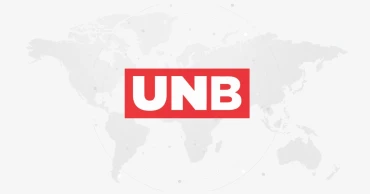
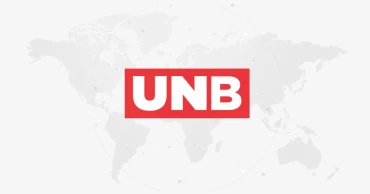
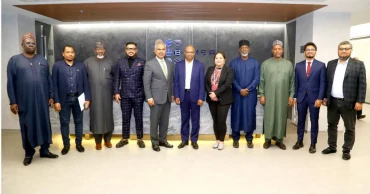
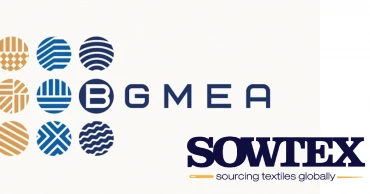
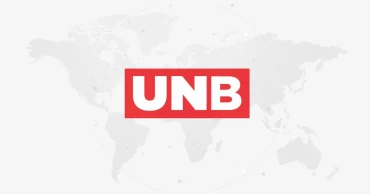

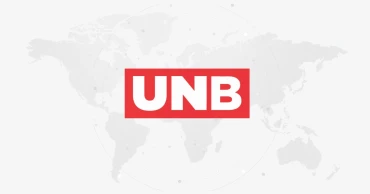

.jpg)






